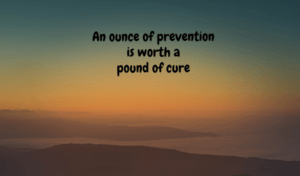More and more I am seeing men in my naturopathic clinic. It’s just wonderful to see men showing an interest in their health and particularly an interest in taking care of themselves through the food they eat and the lifestyles they adopt.
In other words showing an interest in restorative and preventative medicine. Taking action and responsibility for their health (before something bad happens).
Historically men have been more reticent than women about seeking help when they are unwell, or perhaps of greater concern, not even acknowledging that they are unwell in the first place. So it’s exciting to see this trend slowly changing. Afterall, why shouldn’t men take care of themselves?
If you want to maintain peak performance you need to take care of the machinery.
So why might men seek naturopathic support for their health?
Not surprisingly, men can suffer from most of the problems that afflict women. In particular, I see men seeking help for:
- Stress related issues
- Fatigue
- Insomnia
- Digestive complaints
- Recurrent illnesses
- Diabetes
- Hypertension
- Weight gain
- Depression
- Anxiety
- Skin complaints
And then there are the complaints more specific to men such as:
- Erectile dysfunction or impotence
- Male infertility
- Loss of muscle tone or strength
- Declining performance both physically and mentally
What could be causing these health complaints in men?
In some cases it will be the same as their female counterparts.
For example:
- Poor dietary choices
- Exposure to too many environmental toxins
- Obvious (or not so obvious) bacterial or viral infections
- The effects of a lifestyle which does not support good health
In addition, though we must take into account male hormonal balance.
How do hormones affect a man’s health?
The obvious place to start is with testosterone.
The signs of possible low or deficient testosterone include:
- Loss of energy or stamina
- Loss of libido or performance
- Loss of motivation or confidence
- Loss of muscle tone and increase in body fat
- Loss of bone density
- Changes in mood, particularly depression
- Increased wrinkles
- Loss of hair on the face or body
Why might testosterone be low?
The reasons for this are numerous and from a naturopathic perspective it is important to address these reasons before you rush in to testosterone replacement.
These causes of low testosterone might include:
- Other hormonal imbalances
- Nutritional inadequacy
- Insulin resistance
- Stress
- Inflammation
- Alcohol, smoking or recreational drug use
- Being overweight
- Some medications
- Testicular trauma
But testosterone is not the only hormone we need to consider. The complex interplay of hormones is probably a bit beyond the scope of this blog but needless to say it can take a bit of detective work to unravel the picture. However, one of the other hormones which can affect men’s health is oestrogen, especially if they have too much of it.
Why might a man have high oestrogen?
High oestrogen in a male can be driven by:
- Excess visceral fat (that’s the stuff around your waistline)
- Alcohol consumption (it pushes your hormones down a pathway that makes oestrogen instead of testosterone)
- Exposure to environmental toxins which are known to be hormone disruptors
If you want to maintain your health, don’t ignore the warning signs
It’s not a given that low testosterone is inevitable the older you get. More than 50% of men will still have healthy levels of testosterone at 80 years of age. But it does seem to be more common to find men even as young as their 30s with low testosterone.
Perhaps more so than in women, a decline in sexual health can often precede a decline in overall health (the canary in the coalmine) so the sooner it is picked up, the more chance we have of preventing further disease. Don’t ignore the warning signs. Addressing these issues will positively impact all aspects of your life and that seems like a pretty smart move.





